Section 440 BNSS : Sessions Judge’s Jurisdiction to Revise Cases .
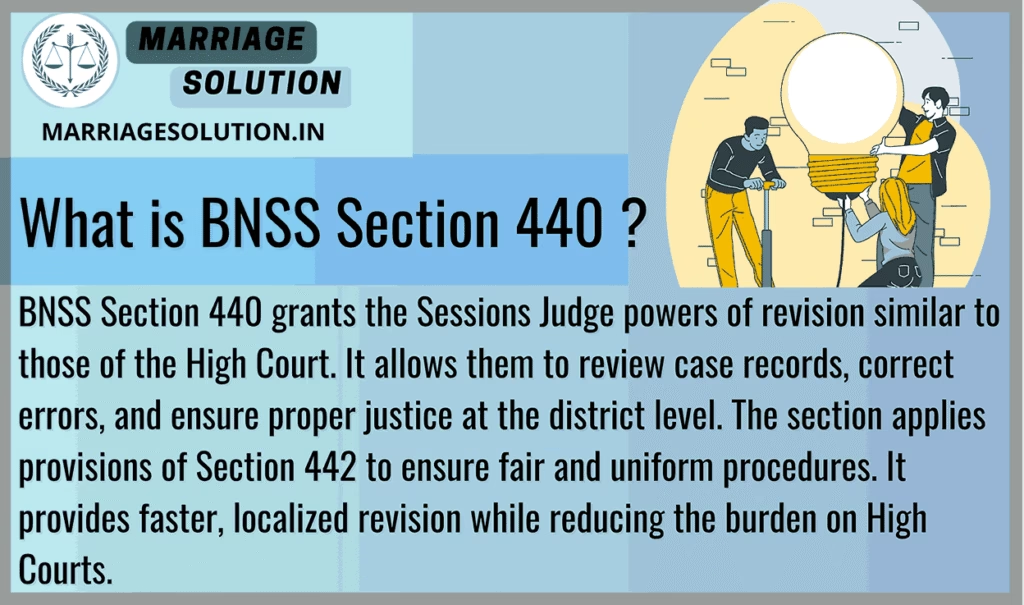
Section 440 BNSS empowers Sessions Judges to review and revise subordinate court decisions, apply High Court powers, and ensure judicial efficiency while reducing High Court burdens.
Section 439 BNSS : Power to Order Inquiry Explained .
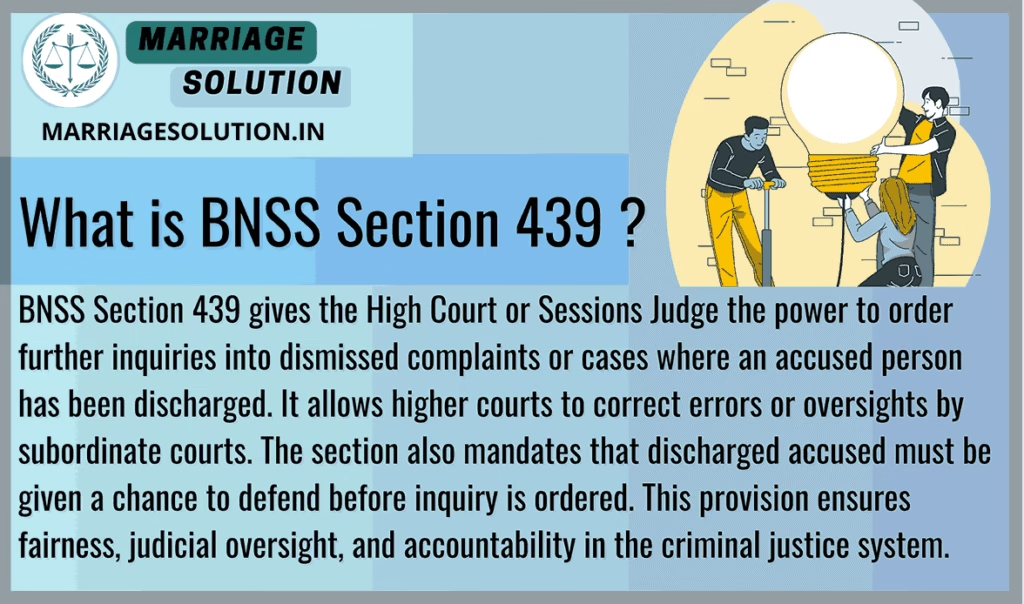
Section 439 BNSS gives the High Court and Sessions Judge power to order inquiries into dismissed complaints or discharged cases, ensuring judicial oversight, fairness, and correction of errors in criminal justice.
Section 438 BNSS : Calling for Records and Powers of Revision Explained.
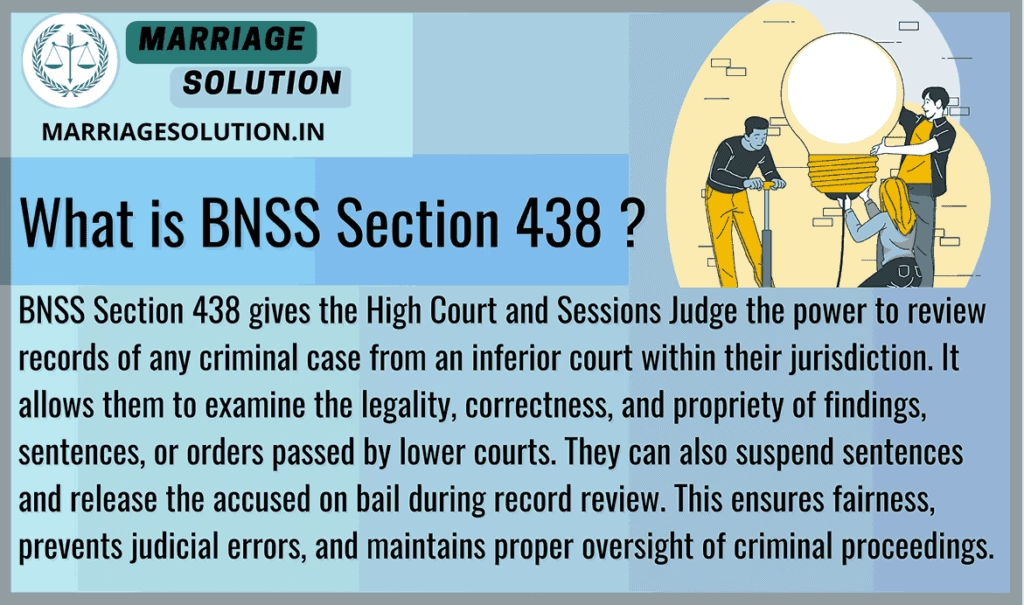
Section 438 BNSS allows higher courts to review records of inferior courts, suspend sentences, and correct errors to ensure fair justice.
Section 437 BNSS : Disposal of Cases According to High Court Decisions .
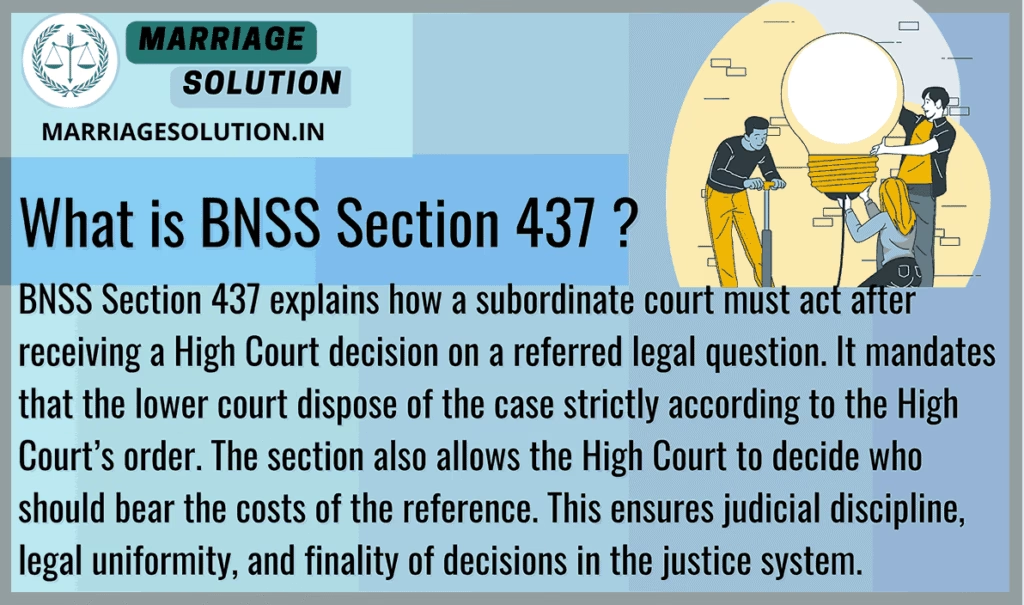
Section 437 BNSS outlines how subordinate courts must dispose of cases in line with High Court orders and allows the High Court to decide reference costs, ensuring judicial uniformity and discipline.
Section 436 BNSS : Power of Courts to Refer Cases to High Court .
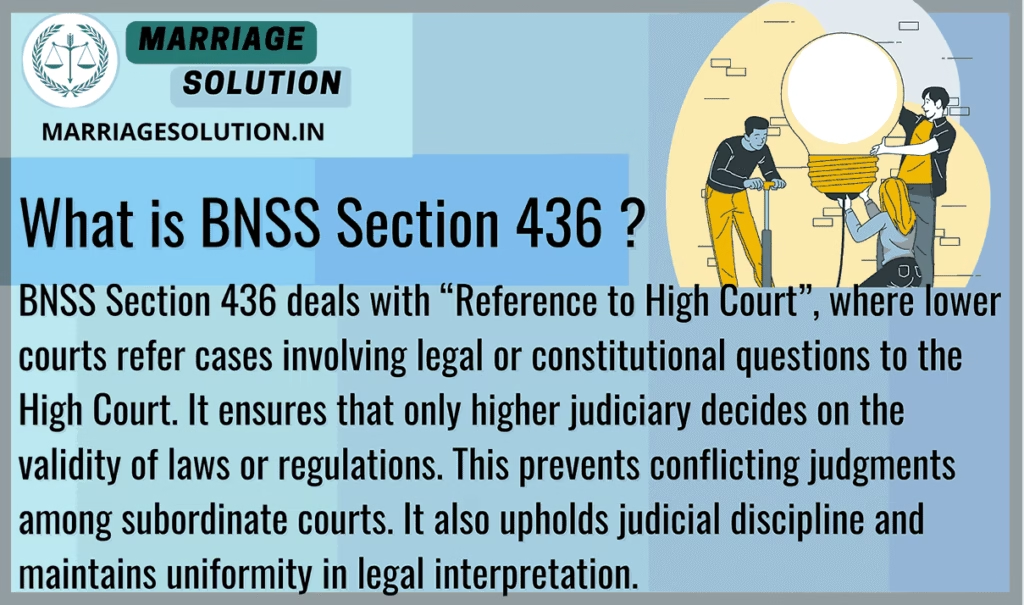
Section 436 BNSS : Explains how subordinate courts refer legal or constitutional questions to the High Court. It ensures judicial hierarchy, prevents conflicting rulings, and strengthens fair justice under the Bharatiya Nagarik Suraksha Sanhita.
Section 435 BNSS : Appeal Abatement and Rights of Relatives After Death .
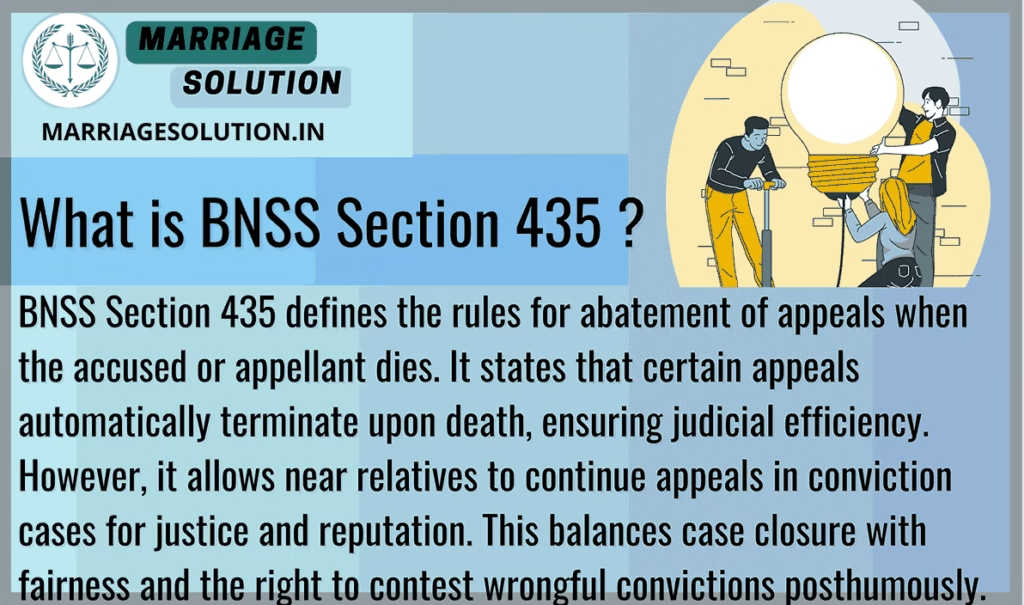
Section 435 BNSS: defines appeal abatement rules upon death, allowing near relatives to continue appeals against convictions to protect dignity and ensure justice.
Section 434 BNSS : Finality of Judgments and Appellate Orders Explained.
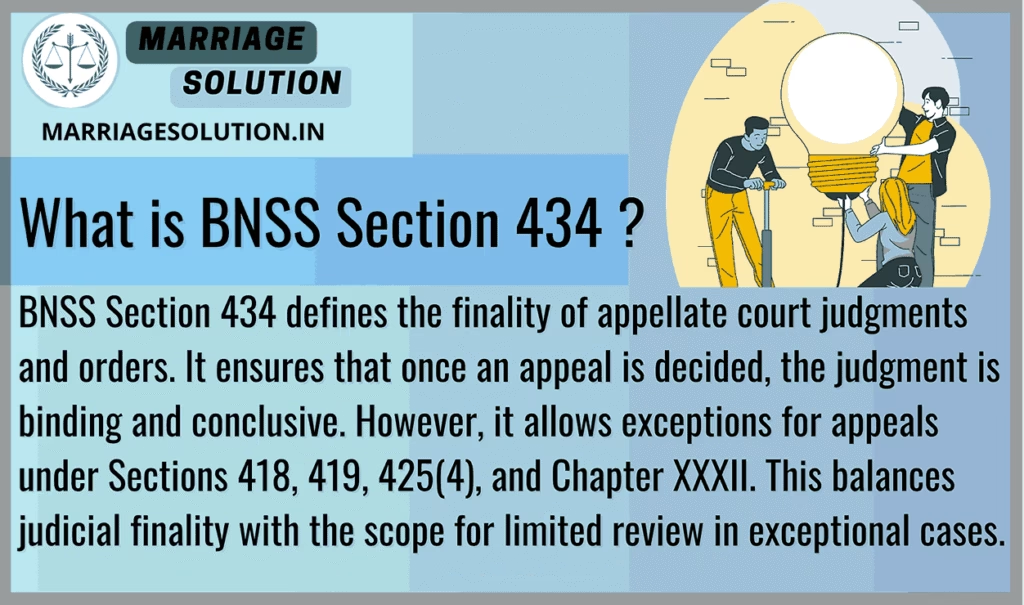
Section 434 BNSS : Establishes finality of appellate judgments with limited exceptions like appeals against acquittal, sentence enhancement, and Supreme Court review, balancing closure and justice.
